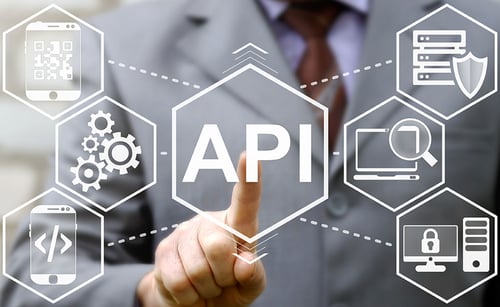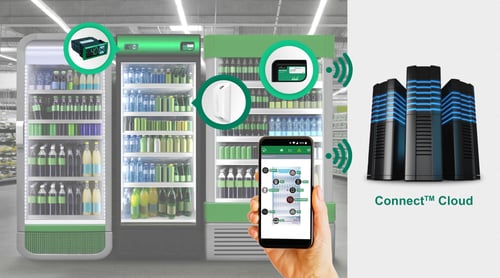When we connected our most advanced commercial refrigeration customer directly to the Wellington Drive (or AoFrio as it’s now known) Cloud platform in 2021; it was one of the earliest commercial refrigeration fleets to be enabled as an IoT ecosystem. This was made possible by using application programming interfaces or APIs.
An ecosystem is born
When we connected our most advanced commercial refrigeration customer directly to the Wellington Drive (or AoFrio as it’s now known) Cloud platform in 2021; it was one of the earliest commercial refrigeration fleets to be enabled as an IoT ecosystem. This was made possible by using application programming interfaces or APIs.

With API technology joining the dots, our customers can sync data collected from their cooler fleet and transmitted into the AoFrio Cloud directly to their own machine-learning enabled Cloud platform. This meant they could merge a huge range of data points from coolers in the field with their own sales information, customer feedback, and spare parts requests, to solve servicing issues faster and automate requests for improvements for their refrigeration assets.

What comes next?
As our Cloud platform continues to evolve, we are developing our API program to directly engage with the challenges our customers face. We believe APIs will deliver sustainable growth and generate new value, enhance customer experience, and improve asset and fleet economics.
More about APIs
Think of an API as a reusable software connector that enables two applications to talk to each other. When you log into a new app with your Facebook ID, you’re using an API. When you’re checking out Google or Apple Pay in a mobile app, you’re using an API.
APIs make the process of building new experiences in software much faster, as the APIs can be reused for different applications and are entirely self-served.
